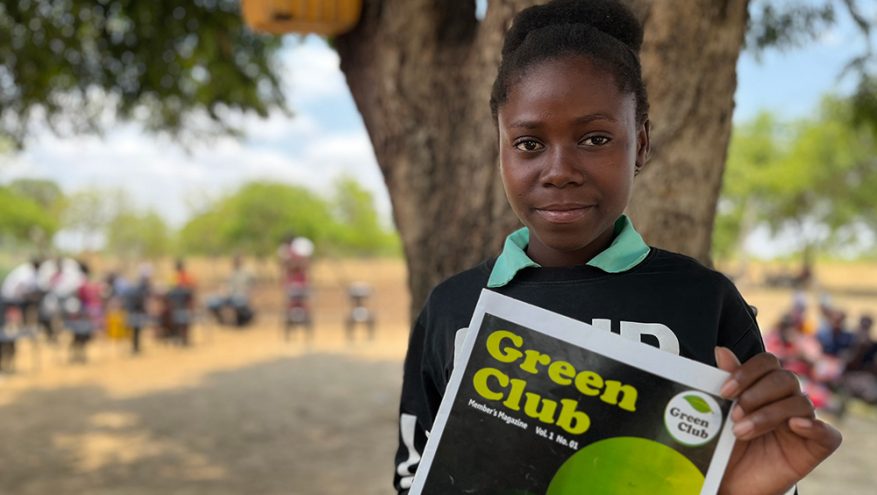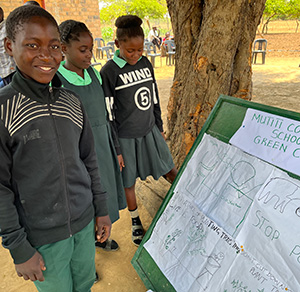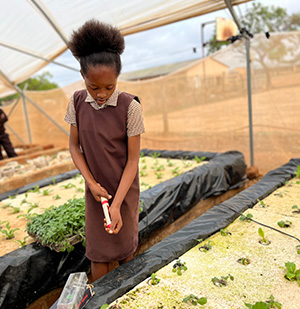There’s been an upsurge in climate activism amongst young people in recent years.
Swedish environmentalist Greta Thunberg might be the international face of a youth movement concerned by global warming, but in villages and communities across Africa there too is an emergence of youth activists responding to the climate crisis.
Zambia’s southern province is a case in point.
It’s the region of the country that has been hit hard by climate change, experiencing crop failures and livestock decimation at regular intervals since the early 1990s.
Within Self Help Africa’s PRESERVE Project – centred around the Kafue Flats, the vast flood plan that flank the Kafue River in southern and central Zambia – 13 ‘Green School Clubs’ have been established to harness the energy and direct the concerns of young people to positive action in their communities.
11 year old Ellen Manyepe, Chiswa Moonga (13) and his sister Valencia (12) are members of the Green Club at Mutiti Community School in Chongo district.
Formed shortly after the Irish Aid backed PRESERVE II Project was started, the children at Mutite club have been at the vanguard of a school effort that has planted close to 400 trees, while they have also been campaigning against tree felling and the production of charcoal, against illegal poaching of wildlife, and to encourage households to reduce the amount of plastics that they use.
“We believe that we have a role to play in combatting climate change, and we take these messages home from school and share them with our families,” says Ellen Manyepe.
30 miles south of Chongo, at Gwembe Primary School the attention is on food production, with school-children playing a leading role in the production of vegetables in a school polytunnel that produces crops for a part of the year using hydroponics.
According to headmaster Oscar Kabika the children are at the forefront of the effort, and that the food being grown in the tunnel is used to support a school meals feeding programme.
With backing from the World Food Programme, Self Help Africa has supported a school food production initiative at 78 schools across the region in the past five years, with over 20 of the schools being supported with hydroponics.
Self Help Africa’s Decision Mweemba says that hydroponics, a type of horticulture that grows crops in a water-based mineral solution rather than soil, has also allowed schools to increase yields, to grow crops in the dry season, and to produce a wider variety of crops.
Gwembe headmaster, Oscar Kabika says that school attendance has increased significantly since the feeding programme was initiated. “We used to have around 600 pupils. Now we have just under 800 attending the school on a daily basis,” he said.



